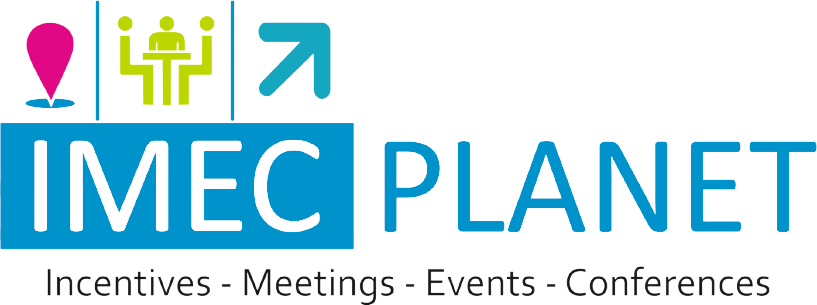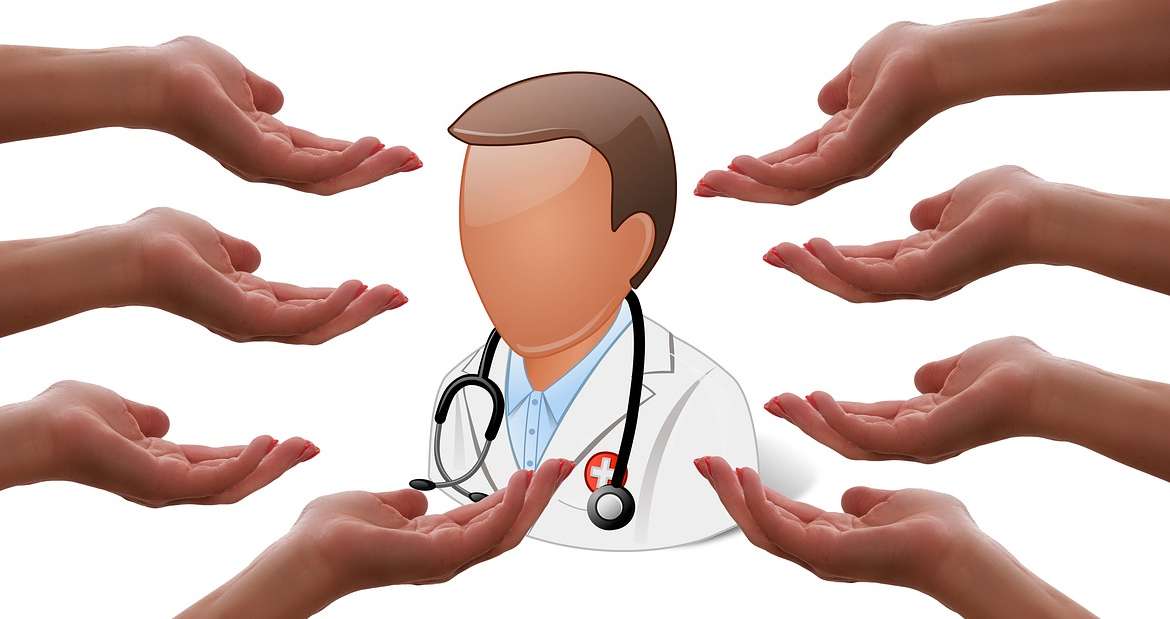Every patient across the globe has a right to seek the highest level of quality medical treatment at the most affordable cost, no matter whether they have to travel abroad for it. India has evolved to become one of such top-notch medical tourism destinations which boasts to provide affordable yet qualitative treatment, thus scoring high on several aspects, including patient satisfaction, quality hospitals and renowned doctors to name a few.
Medical tourism in India has grown tremendously in the last few years. The current medical tourism industry in India is estimated to be worth $3 billion and is expected to grow by another $4 – $5 billion in the next three years.
High quality of medical services and affordable cost of medical treatment in India are the two leading reasons behind the boom in healthcare tourism in the country. A large majority of inbound medical tourists to India are from Bangladesh and Afghanistan (34%), Russia and Commonwealth of Independent States (30%), the Middle East, (10%), Africa (10%), and the UK and the US (16%).
Medical tourism companies in India help foreign patients seek affordable treatment at some of the best hospitals in India, which are located across the length and breadth of the country. New Delhi and NCR, Hyderabad, Mumbai, Bangalore and Chennai are some of the top Indian destinations that receive highest number of medical tourists each year.
Almost two hundred thousand patients travel to India each year to seek medical care. “Total hip arthroplasty, knee replacement, heart bypass, coronary artery bypass grafting (CABG) and liver, kidney, and heart transplant are some of the popular and life-saving procedures for which medical tourists visit India.”
Over the years, India has grown to become a top-notch destination for medical value travel because it scores high over a range of factors that determines the overall quality of care. Imagine a complex surgical procedure being done in a world class global hospital by acclaimed medical specialists at a fifth to tenth of what it normally takes! That’s India. From quality of therapy, range of procedural and treatment options, infrastructure and skilled manpower to perform any medical procedure with zero waiting time, the list of benefits of travelling for medical treatment in India are many.
Why India? The basics for successful healthcare solutions:
Facilities
 The high-end healthcare system in India is as good as the best in the world. India maintains not only a robust accreditation system but also a large number of accredited facilities (about 275 such facilities that match any global infrastructure). India has a good number (22) of JCI (Joint Commission International) accredited hospitals and compares well with other countries in Asia. These set of approved hospitals in India can provide care at par or above global standards.
The high-end healthcare system in India is as good as the best in the world. India maintains not only a robust accreditation system but also a large number of accredited facilities (about 275 such facilities that match any global infrastructure). India has a good number (22) of JCI (Joint Commission International) accredited hospitals and compares well with other countries in Asia. These set of approved hospitals in India can provide care at par or above global standards.
Frontier technologies
 Cutting edge technology to support medical diagnostics and medical procedures are employed by specialists in medical facilities. All recognized hospitals have invested a lot in supportive technology and operative techniques. Complicated heart surgeries, cancer care and surgeries, neuro and even general surgeries require high-end technology to continually better outcomes, minimize complications, enable faster recovery and reduce length of hospital stay. The recent advancements in robotic surgeries, radiation surgery or radio therapies with cyberknife stereotactic options, IMRT / IGRT, transplant support systems, advanced neuro and spinal options are all available in India. India’s medical management and acclaimed specialists are quite comfortable in challenging themselves to new frontiers to provide solutions, always building on their expertise.
Cutting edge technology to support medical diagnostics and medical procedures are employed by specialists in medical facilities. All recognized hospitals have invested a lot in supportive technology and operative techniques. Complicated heart surgeries, cancer care and surgeries, neuro and even general surgeries require high-end technology to continually better outcomes, minimize complications, enable faster recovery and reduce length of hospital stay. The recent advancements in robotic surgeries, radiation surgery or radio therapies with cyberknife stereotactic options, IMRT / IGRT, transplant support systems, advanced neuro and spinal options are all available in India. India’s medical management and acclaimed specialists are quite comfortable in challenging themselves to new frontiers to provide solutions, always building on their expertise.
Finest doctors
 India has not only hospitals with world-class facilities but skilled world-class doctors and medical personnel too. The country has the largest pool of doctors and paramedics in South Asia (1.2 million Allopathic doctors. 0.17 million dental surgeons, 2 million nurses). Many of them have established their credentials as leaders around the world. India’s medical history spans thousands of years through Ayurvedic and alternate medicine forms. There are about 0.8 million formally trained Ayurvedic doctors. With a large number of doctors, there is a high level of competency and capability in adoption of newer technologies and innovation and fresh treatment methods. It is a wonderful example of higher quantity leading to higher quality and vice versa. Communicate, talk to the doctors in the accredited facilities prior to your visit and they will study your needs and customize the treatment for you!
India has not only hospitals with world-class facilities but skilled world-class doctors and medical personnel too. The country has the largest pool of doctors and paramedics in South Asia (1.2 million Allopathic doctors. 0.17 million dental surgeons, 2 million nurses). Many of them have established their credentials as leaders around the world. India’s medical history spans thousands of years through Ayurvedic and alternate medicine forms. There are about 0.8 million formally trained Ayurvedic doctors. With a large number of doctors, there is a high level of competency and capability in adoption of newer technologies and innovation and fresh treatment methods. It is a wonderful example of higher quantity leading to higher quality and vice versa. Communicate, talk to the doctors in the accredited facilities prior to your visit and they will study your needs and customize the treatment for you!
Financial Savings
 Quality of care is what attracts people. However, quality services should not be beyond the affordability of the patient who requires it. If quality comes at an affordable cost it is an unbeatable advantage. This confluence of highest quality and cost advantage is unique for India. The benefit is unimaginable when it comes to major treatments such as for leukemia where the difference in cost is 10 to 20 times. For other treatments, it could be anything from a fifth to a tenth when compared to Western countries and 80 to 90 per cent of what is charged in other South Asian medical destinations. The estimated 600,000 people who step into India from other countries do not do so for cheap healthcare but for quality healthcare at an affordable cost. They are not compromised at any level, but regain health at a fraction of the cost.
Quality of care is what attracts people. However, quality services should not be beyond the affordability of the patient who requires it. If quality comes at an affordable cost it is an unbeatable advantage. This confluence of highest quality and cost advantage is unique for India. The benefit is unimaginable when it comes to major treatments such as for leukemia where the difference in cost is 10 to 20 times. For other treatments, it could be anything from a fifth to a tenth when compared to Western countries and 80 to 90 per cent of what is charged in other South Asian medical destinations. The estimated 600,000 people who step into India from other countries do not do so for cheap healthcare but for quality healthcare at an affordable cost. They are not compromised at any level, but regain health at a fraction of the cost.
Fast Track – Zero Waiting Time
 Quick and immediate attention for surgeries and all interventions are assured in India. Getting an appointment for bypass surgery or a planned angioplasty in certain countries takes almost 3-6 months. And there these treatments are very costly too. It’s zero waiting time in India for any procedure, be it heart surgery, kidney care, cancer treatment, neuro-spinal procedure, knee/hip/joint replacements, dental, cosmetic surgeries, weight loss surgery etc.
Quick and immediate attention for surgeries and all interventions are assured in India. Getting an appointment for bypass surgery or a planned angioplasty in certain countries takes almost 3-6 months. And there these treatments are very costly too. It’s zero waiting time in India for any procedure, be it heart surgery, kidney care, cancer treatment, neuro-spinal procedure, knee/hip/joint replacements, dental, cosmetic surgeries, weight loss surgery etc.
Feeling the pulse
 For greater understanding between patients and healthcare personnel, the warmth and hospitality of Indian hospitals is a big factor in choosing India as a healthcare destination. Among the top medical destinations of the world, India has the highest percentage of English language speaking people. Amidst the variety of culture and traditions, if there is one thing that is common in India, that is the English language. If other language options are essential, there are expert interpreters who will be arranged by the hospitals. All leading to reassuring hospitality and great after care.
For greater understanding between patients and healthcare personnel, the warmth and hospitality of Indian hospitals is a big factor in choosing India as a healthcare destination. Among the top medical destinations of the world, India has the highest percentage of English language speaking people. Amidst the variety of culture and traditions, if there is one thing that is common in India, that is the English language. If other language options are essential, there are expert interpreters who will be arranged by the hospitals. All leading to reassuring hospitality and great after care.
What is NABH?
 NABH is the abbreviation for National Accreditation Board for Hospitals & Healthcare Providers.
NABH is the abbreviation for National Accreditation Board for Hospitals & Healthcare Providers.
It is a body which operates accreditation and allied programs on patient safety and healthcare quality. The standards, evaluation and certifications are based upon national/international norms, through a process of self and external evaluations.
International linkages
 NABH is an institutional member of the International Society for Quality in Health Care (ISQUA). ISQUA is an international apex body which grants approval to Accreditation Bodies in the area of healthcare as mark of equivalence of accreditation program of member countries.
NABH is an institutional member of the International Society for Quality in Health Care (ISQUA). ISQUA is an international apex body which grants approval to Accreditation Bodies in the area of healthcare as mark of equivalence of accreditation program of member countries.
As NABH standards have been approved by ISQUA, NABH accreditation of India is equivalent to some of the world’s leading hospital accreditations like JCI, Japan Council for Quality Healthcare (JCQC), National Safety and Quality Health Service (NSQHS) developed by the Australian Commission on Safety and Quality in Health Care (ACSQHC) etc.
For what healthcare service providers does NABH apply to
NABH accreditation applies to Hospitals, Ayurveda centres, Wellness centres, blood banks, dental facilities etc. A large majority of healthcare providers featured in this website have obtained the coveted NABH / JCI accreditations.
So far hospital standards of only 11 countries viz., Australia , Canada , Egypt , Hong Kong , Ireland , Japan , Jordan , Kyrgyz Republic , South Africa , Taiwan , United Kingdom were accredited by ISQua. India becomes the 12th country to join in this group.
More details from https://www.nabh.co/
Ayurveda Overview
Ayurveda is one of the world’s oldest medical systems that originated in India. The practice has two-fold aims:
- To maintain the health of a healthy person, rejuvenate, purify and prevent diseases
- Heal the ailment of the patient
 Ayurveda in Sanskrit means “Knowledge of Life” ( Ayur – lifespan, and Veda-knowledge). The basis of this medical form is solid Indian writings of old, compiled over a 2 century period between 1500 BC and 400 AD, when many experts put down their observations and experiences.
Ayurveda in Sanskrit means “Knowledge of Life” ( Ayur – lifespan, and Veda-knowledge). The basis of this medical form is solid Indian writings of old, compiled over a 2 century period between 1500 BC and 400 AD, when many experts put down their observations and experiences.
India being the home to this form of treatment offers many exciting therapeutic and rejuvenation packages. Experience healing and rejuvenation through this ancient form run by India’s accredited centres with all modern amenities in natural settings to make your stay a memorable one.
Ayurvedic Offerings
| Therapeutic | Rejuvenation |
|---|---|
| Dhara | Kayakalpa Chikitsa |
| Sirovasti | Sweda Karma |
| Pizhichil | Body Slimming |
| Udvarthanam | Beauty Care |
| Marma Chikitsa | Meditation and Yoga |
| Nasyam | Panchakarma Treatment |
| Karnapooranam | |
| Tharpanam | |
| Njavarakizhi |
Therapeutic
| Dhara | Treatment for chronic headaches, insomnia, mental tension and cases of hysteria, hallucination and insanity |
| Snehapanam | Treatment to alleviate osteoarthritis, leukemia etc |
| Sirovasti | Treatment for dryness of nostrils, mouth and throat, severe headaches, facial paralysis and burning sensation in the head |
| Pizhichil | Treatment for spondylosis, rheumatic diseases like arthritis, paralysis, hemiplegia, nervous weaknesses and nervous disorders |
| Udvarthanam | Treatment for diseases like hemiplegia, paralysis, obesity and certain rheumatic ailments |
| Marma Chikitsa | Treatment for musculoskeletal ailments due to trauma or accidents |
| Nasyam | Treatment for nasal ailments |
| Karnapooranam | Treatment for ear ailments |
| Tharpanam | Preventing cataract and strengthening vision |
| Njavarakizhi | Treatment for wasting of muscles, rheumatism, sports injuries, pain in the joints, emaciation of the body or parts of the body and certain kinds of skin diseases |
| Kashayadhara | Treatment for skin |
Rejuvenation
| Kayakalpa Chikitsa | Body immunisation and longevity treatment |
| Sweda Karma | Body Sudation |
| Thaulyakna Chikilsa | Body Slimming |
| Beauty care | Herbal face pack, herbal oil massage, intake of herbal tea etc. improves complexion and beautifies the body |
| Meditation and Yoga | Mental and physical well being |
| Panchakarma Treatment | A five-fold treatment for mental and physical well-being – tunes the body, organs, mind, breath, nerves and purifies the blood |
Essentials
Essentials for International Patients
- Contact the Ayurveda Centre
- Share medial history and all tests/reports with the doctor
- Post consultation, fix an appointment for visit
- Be ready with all the necessary documents (passport, visa, photo ID etc.)
Essentials before Treatment
- Provide History of Illness
- Present complaints/medications
- CT Scan and MRI Scan reports in cases of accidental injury, skeletal disorders
- Blood reports
Packages and Costs for Ayurveda
- Cost per Ayurvedic procedure ranges from USD 30 to USD 200
- Packages are also made available by every Ayurveda centre which ranges from USD 200 to USD 600 for procedures that run for longer duration
- Cost for Ayurveda procedures is dependent upon the length of stay which is 2, 3, 7,14,21 or 28 weeks respectively and type of room (deluxe room,super deluxe, villa etc.) opted for.
- There are OP / day-care treatments too for which the treatment / rejuvenation time will range from 30 min to 2 hours
Wellness Tourism
The potential of wellness systems, developed through centuries of wisdom of this ancient civilization would be fully tapped. This is being done by positioning India as a centre of Ayurveda, Yoga, Sidha, Naturopathy, etc. together with the spiritual philosophy that has been integral to the Indian way of life.
 Ministry of Tourism has drafted guideline for wellness tourism. These guidelines address issues regarding making available quality publicity material, traininig and capacity building for the service providers, participation in international & domestic Wellness related events, etc.
Ministry of Tourism has drafted guideline for wellness tourism. These guidelines address issues regarding making available quality publicity material, traininig and capacity building for the service providers, participation in international & domestic Wellness related events, etc.
Mushrooming of wellness centers in the country have given rise to the concern for quality service. The Guideline for Accreditation of wellness centers have been developed by National Board for Accreditation of Hospitals & Healthcare Services (NABH) in consultation with AYUSH and released during the workshop on wellness tourism organized by Ministry of Tourism on 15 Feb 2011.
The Ministry of Tourism has also extended its Market Development Assistance (MDA) scheme to wellness tourism service providers including accredited wellness centers. Presently the wellness centers accredited by State Tourism Departments are also eligible for the MDA. After the accreditation guidelines of NABH is in place, all wellness centers seeking MDA would be asked to be as close to the accreditation guidelines of NABH as possible.
The initiative of accreditation of wellness centre by NABH and AYUSH has been greatly driven be the Ministry of Tourism as also consultation with the Wellness Tourism Service Providers, State Governments and other stakeholders.
What is an IVF?
In vitro fertilisation is a process of fertilisation where an egg is combined with sperm in vitro. The process involves monitoring and stimulating a woman’s ovulatory process, removing an ovum or ova from their ovaries and letting sperm fertilise them in a culture medium in a laboratory.
In 1978 Steptoe and Edwards used assisted reproductive technology (IVF) successfully resulting in the birth of Lousie Browne.
Ever since then, this technology has not only helped women conceive in situations where is would not have been possible otherwise but has also laid bare the entire process of reproduction thus helping the scientists to understand the intricacies of this process better.Today, with Lousie giving birth to a child, IVF has become a credible option for family building!
WHO estimates that there are 60 – 80 million such couples all over the world suffering from infertility thereby making this condition an epidemic. Although there are no definite studies from India, it is estimated that 6 – 10% of all Indians are infertile and due to rapid modernization and increasing environmental toxins, the condition is on the rise.
In the Indian society childlessness is viewed not just as a medical disorder but a social stigma because Indians marry early, traditionally have a stable family norm and have a desire to produce many children thereby producing an ever increasing demand for all kinds of therapies and interventions. Infertility management has therefore become an integral part of reproductive medicine in the country.
General Information
1: What accreditation standards are followed in India
The hospitals align to JCI or the NABH accreditation which are stringent and oriented to the highest standards for medical delivery
2: How much time will I have to wait for admission to a hospital and for procedure to get done
In India there is no waiting period or queuing up, either for diagnostic procedures or for treatment. Healthcare is not worth it when there is a prolonged waiting time.
After the initial diagnosis is done and the medical procedure decided upon, your surgery/intervention will be scheduled quickly. In a matter of days any medical procedure can be completed, unlike in some countries where even the diagnostic procedure could take many weeks or months.
3: When making a trip to India for a medical treatment, what are the essential documents I need to carry along?
-
- History/ Records/ Test reports/ Doctor referral notes/ X-rays
- Contact details – Residence/ Driver’s license/ Passport copies
- Passport size photos – keep 10-15 in hand for various purposes
- Bank statement/ Details of Health insurance, if any.
4: Should I take vaccinations before coming to India
Vaccinations and up-to-date immunizations are a safeguard for any international travel. However, please check with the doctor in your home country, any Government advisory and also the hospital in India as to what should be taken. The recommended vaccinations would normally be from the following list:
-
- Diptheria Pertussis and Tetanus (DPT)
- Measles, Mumps and Rubella (MMR)
- Polio (Oral Polio Vaccine or Injectable Polio Vaccine)
- Hemophilus b conjugate vaccine (Hib)
- Hepatitis A
- Hepatitis B (when stay goes beyond 60 days)
- Typhoid
- Japanese B encephalitis (JBE)
Medical Visa
1: Will assistance be provided by hospitals in obtaining Medical Visa?
Hospitals would provide assistance in this regard. Once you decide on India as your medical travel destination, an invitation letter from the respective Hospital will be required for visa processing. The hospital will send this to you after your initial discussions about the treatment; this has to be presented at the ‘Embassy’ or ‘High Commission of India’ in your country.
2: Is it possible for my family members/ attendant travelling along with me for my treatment to obtain Medical Visas?
Attendants/family members of patients coming to India for medical treatment will have to apply for Medical Attendant visa (MEDX) co-terminus with the Medical visa of the patient. A letter from the hospital will be useful here as well.
3: Who are the permitted attendants and how many can travel?
Attendants should be spouse/children or those having blood relations with the patient. Not more than two attendants are allowed.
4: What are the requirements for obtaining my medical visa?
-
- Passport size photographs
- Photo copy of passport
- Copy of online Filled form
- Proof of Residential Address
- Recommendation from the home country doctor to visit particular specialized medical centre for treatment
- Passport copy of the attendant
- Proof of relationship with the attendant
- Medical reports
- Passport with 6 month validity
5: How long is a medical visa valid for?
Initial duration of the visa is one year or the period of treatment, whichever is less. Visa will be valid for maximum three entries in a year.
6: If a necessity of a repeat visit arises, how many are allowed?
A maximum of 3 entries are allowed in one year.
7: What would be the approximate fee for a Medical Visa?
A visa fee for Medical visa is different by countries. It ranges from $13 to $153.
8: Are there any formalities with the Medical Visa after my arrival to India?
Normally the hospitals help you with such formalities. You would have to register at the Foreigner’s Regional Registration Office within 14 days of your arrival. Attendants also have to get registered themselves with the local FRROs / FROs within 14 days of entering India.
9: If my treatment is being prolonged, would I be provided assistance with extension of my visa?
Medical and Medical Attendant visas are extendable by FRRO (Foreigners Regional Registration Office) in India depending upon the condition of the patient on the production of the required medical documents.
Essentials Prior to Visit
1: What is the procedure for booking a treatment at a hospital?
Select one or a few hospitals and drop them an email on the ID provided in the portal. Alternately, speak to a staff at the ‘International Patients Division’ of the hospital. From that point, the staff at the hospital will collect for more details on your health, the condition for which you need treatment and the possible options. The formalities may differ slightly by hospitals and depending on your physical condition, the medical attention needed etc. The hospitals will guide you fully on the requirements thereon after consulting their specialist doctor. Note:Contact details can be taken from this portal, and you could also follow the link to the Hospital website.
2: Would the Hospital undertake bookings for my family/attendant’s accommodation?
On prior intimation, Hospitals are most likely to suggest options for stay and arrange for accommodation depending on your need. Kindly verify the same before your visit.
This portal also lists many facilities for accommodation and stay in various cities of India and in particular, the options which are available near to the hospitals.
3: Can I obtain an estimate of the cost of treatment?
Yes, hospitals will provide that. Please ensure that you get this in hand.
The cost as you may be aware, depends on the medical condition, the choice of treatment, the type of room opted for etc.
All your medical history and essential treatment details would be analysed by the team of experts in the hospitals. They will also provide you the various types of rooms / accommodation packages available and you have to make the selection. Charges are likely to vary by the type of room you take.
4: Do the hospitals in India accept health insurance?
If you have health insurance that’s internationally valid / valid in India, please alert the hospitals about it. If it’s an approved insurance provider, hospitals might request you to get an advance payment guarantee which you will have to co-ordinate from your home country.
5: What are the inclusions / exclusions in the cost?
Hospitals will provide details very clearly.
Usual inclusions are:
-
- Stay and beds
- Diet – for patient and bystander
- Surgeon and anaesthetist’s fee
- Nursing
- Doctor’s / specialist consultation and fee
- Fee for surgery, theatre room
- Consumables used for surgery (sutures, tubes etc.)
6: Exclusions
Implants and special consumables
-
- These are choice driven. If the medical procedure needs implants or special consumables, the doctors or staff will intimate you. Implants, consumables are of different sizes, types, materials and cost options. Depending on what suits your body condition, there will be a range of choices. You can make the selection on the brands and/or their quality options based on the cost suitability and suggestion of the specialist.
- Stay beyond the usual time in the hospital, depending on your recovery is likely to be additional.
- Special tests, special medications and high value drugs will be charged extra.
7: Will Hospitals assist in airport transfers?
Yes, pick-up and drop will be arranged on request and clear communication of the travel schedule. Many hospitals do provide airport transfers as a complimentary service and their guest relationship executive will be available at the time of your arrival. Others will intimate, if it is payable.
During Visit/ Treatment
1: How will my appointments with the doctor be scheduled?
The Hospital’s International Patients Division would facilitate in scheduling your appointments and consultations with the doctor. Therefore when you speak to hospital, ask for the international patients division.
2: Would there be pharmacies / medical store available in the Hospitals?
Most Hospitals in India are likely to have a Pharmacy within its premises for easy accessibility.
3: What are the various room categories available in the Hospital?
The standard categories are:
-
- Single accommodation units
- Suite Room
- Deluxe Rooms
- Normal single room
- Multiple sharing units
- Twin sharing
- Triple sharing
- Ward type
- Single accommodation units
4: What are the communication services / facilities provided by the Hospital?
- International calling services/ Local sim cards
- Newspaper – Local/ International
- Internet facility – Wi-Fi
- Room telephone
5: Would I be assisted with an interpreter during my stay?
English is widely spoken across India. But if assistance for any other language is required, interpretation service will be arranged on request. Some hospitals utilise the service of full-time in-house interpreters. It is better that you inform the language need in advance to the hospital where you are likely to go to.
6: Will arrangements be made to fulfil my religious obligations?
Hospitals usually have designated quiet rooms / prayer halls which cater to major religions/faiths. India is a secular country and is open to all religions. The hospital staff would also be able to guide you to the closest place of worship.
7: Would international cuisines be available?
Yes, international cuisines are available in major hospitals. Some menus are standard while others would be on request. Feel free to specify this as you enquire with the hospitals. Please check the hospital description given in this portal and in the hospital website to see the choices. That said, doctors will advise your diet based on your therapeutic needs and quick recovery!
Food is provided to bystanders too from the hospital catering unit.
If you are on any special dietary requirements, the hospital will cater if intimated earlier.
8: How about international cuisine availability for Ayurveda?
For alternative medicine (e.g., Ayurveda), as part of the medical management and treatment for certain conditions, you would have to stick the dietary guidance of doctors. This is for the treatment to have the best of impact and recovery. In such units, international cuisines are usually not provided.
9: What are the other facilities provided by hospitals?
Certain Hospitals provide the following
- Laundry services
- Local sight-seeing
- In-house business centre
- Safety locker facility
- Gymnasium
- Shopping assistance
Please convey your requirements to the staff.
Post Treatment
1: Can I travel immediately after treatment?
It will depend on the period of recuperation for the specific treatment. Based on your Doctor’s advice your return travel can be planned.
2: Are treatment procedures covered by major medical insurance companies?
Medical insurance can be claimed, but kindly check with the respective Hospital if this facility is accepted and, availed.
3: What are the acceptable modes of payment?
All major modes of payments are accepted in India – Cash/ International Master or Visa Credit Card, Travellers cheque etc.
4: What are the procedures involved in the process of discharge?
You will be guided by the Hospital official in its process. Financial aspects would be taken care of once the Discharge summary is handed to you. Subsequently you will be given instructions on medication and recommendations for scheduling of follow up requirements, if any.
5: How will my offshore check-up with the Doctor in India after treatment be scheduled?
You can keep in touch with the respective Doctor via email/phone. Certain Hospitals have the option of video-conferencing with patients offshore.









